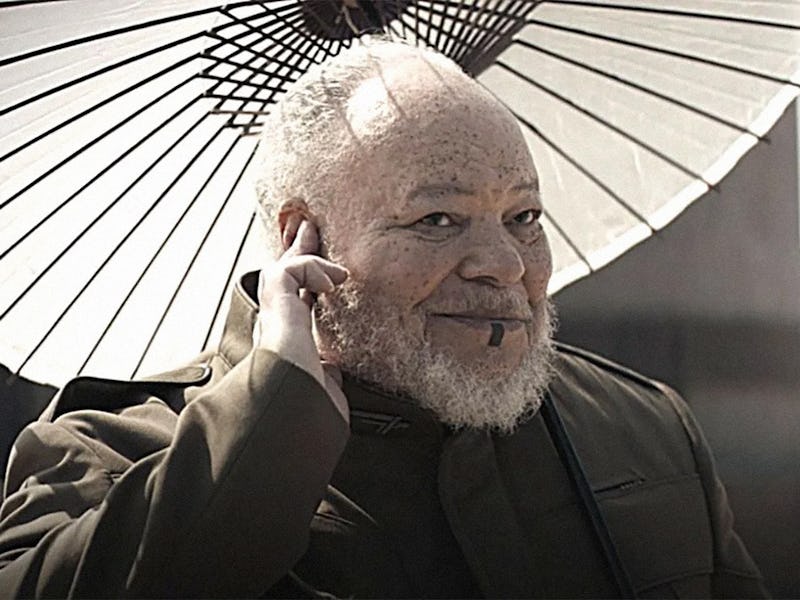A Scrapped Dune 2 Subplot Needs to Come Back in Dune 3
The sequel downplays one of Dune’s most important storylines, but there’s a chance it could return in Part Three.

There may never be a definitive film adaptation of Frank Herbert’s Dune. Denis Villeneuve’s own adaptation, while faithful in a lot of ways, just can’t cover the sheer scope of Herbert’s novel. Sacrifices are inevitable, and that’s all before Villeneuve made choices to prioritize certain aspects and themes. Dune: Part Two especially fleshes out some characters at the expense of others, expanding threads that previous incarnations did away with altogether. A lot of these changes go a long way in keeping this story relevant, but it also diminishes its most important threads in the process.
Speaking to Inverse ahead of Part Two’s release, Villeneuve admitted that adapting Herbert’s text required a “harsh process.” Herbert’s Dune is packed with characters pursuing their own agendas, and the novel is dense enough to inspire several films about each major player. “Someone could have made a Dune adaptation about the Mentats or about the Guild Navigators,” Villeneuve said. “[But] I focused the adaptation of the first book mainly on the Bene Gesserit sisterhood. And that informs all the choices I’ve made.”
In order to hone in on the Bene Gesserit’s role, Villeneuve greatly reduced the role of the Spacing Guild, who oversee interstellar travel, as well as the “living computers” known as Mentats. That meant excising a beloved character from Part Two altogether: House Atreides’ former Master of Assassins. Thufir Hawat (Stephen McKinley Henderson) played an important role in Dune: Part One, as one of many advisors and protectors to Duke Leto I (Oscar Isaac) and his family. But his significance felt downplayed even in Villeneuve’s first film, especially regarding his relationship to Leto’s son, Paul (Timothée Chalamet).
Without Hawat in Part Two, Villeneuve’s Dune runs the risk of erasing a crucial aspect of Paul’s character. But there is another film potentially on the horizon, meaning that we could see another side of Chalamet’s Muad’Dib in the future.
In Herbert’s novel, the Mentats are just as important as the Bene Gesserit.
Hawat plays a substantial role in Herbert’s Dune, especially after the fall of House Atreides. When the Harkonnens launch their coup on Arrakis, Hawat is kidnapped and forced into service to the house. He doesn’t spend his time there idly, however, instead using his strategic powers to sabotage the Harkonnens from the inside. That said, he does assist the Harkonnens in fighting the fabled Maud’Dib, ignorant to the fact that it’s actually Paul. When he does eventually put two and two together, it has a devastating effect on him — but why exactly is he so important to Paul’s development?
In the novels, Paul is trained as a Mentat and as a Bene Gesserit novice. That dual training is pretty crucial to his appeal as the Kwisatz Haderach, a fabled messianic figure. Mentat’s are known as “human computers,” but that really only scratches the surface of their capability. Think of them as the more practical incarnation of the Bene Gesserit, especially where their collective memory is concerned. Their capacity for strategy is legendary, and it’s that instinct that helps Paul rise through the Fremen ranks in his time on Arrakis. Removing that aspect of Paul’s upbringing from Dune isn’t totally damning, but it does help explain why he’s such an anomaly.
Villeneuve’s Dune has downplayed Paul’s subtler powers, but that could change in a potential sequel.
We’ll probably never see what Hawat’s role in Dune: Part Two might have been, as Villeneuve is adamant about leaving things on the cutting room floor. Since Hawat is completely absent from the film, is there a chance he could show up again in a potential Part Three? It wouldn’t be the most acute change in Villeneuve’s series, and his return could go a long way in establishing a forgotten aspect of Paul’s prowess.
Time will tell, but it’s high time for the world of Dune to expand. A different perspective could only make Villeneuve’s adaptation feel more realized. It could also go a long way in establishing Paul’s more practical machinations — and since he’s well on his way to becoming a dictator, it’s a pretty important trait to underscore.